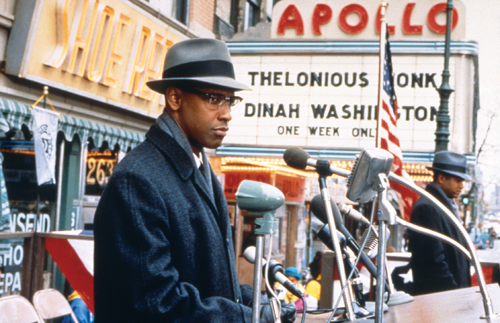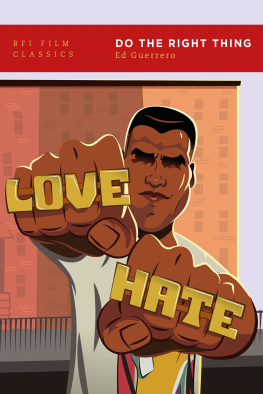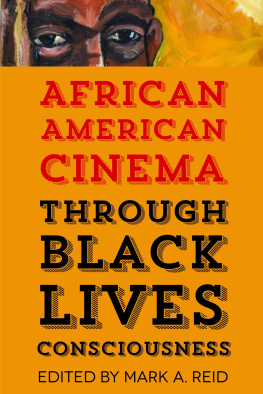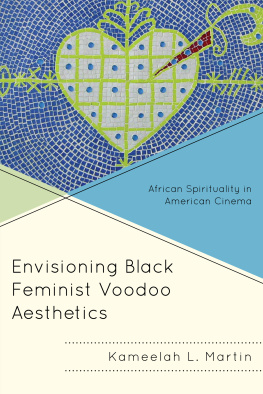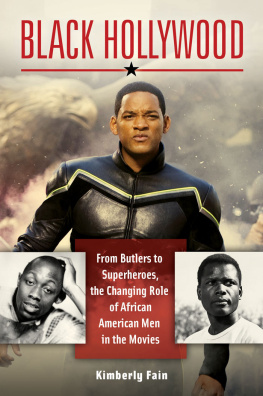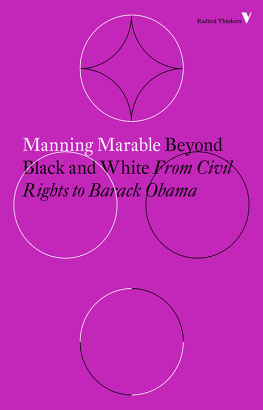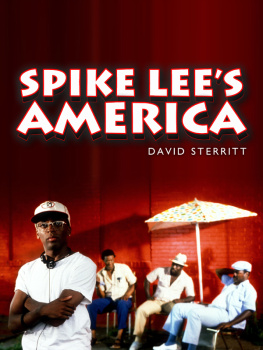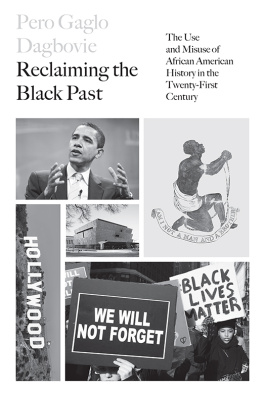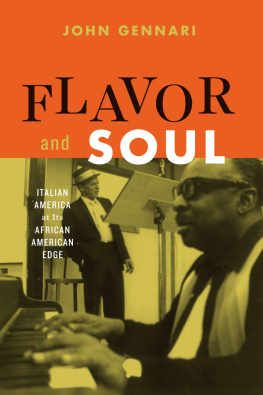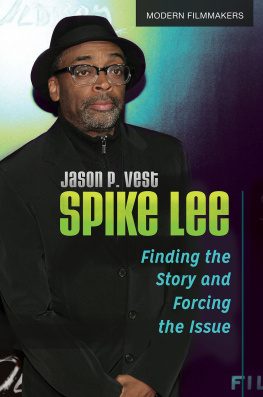BFI Film Classics
The BFI Film Classics series introduces, interprets and celebrates landmarks of world cinema. Each volume offers an argument for the films classic status, together with discussion of its production and reception history, its place within a genre or national cinema, an account of its technical and aesthetic importance and, in many cases, the authors personal response to the film.
For a full list of titles in the series, please visit
https://www.bloomsbury.com/uk/series/bfi-film-classics/
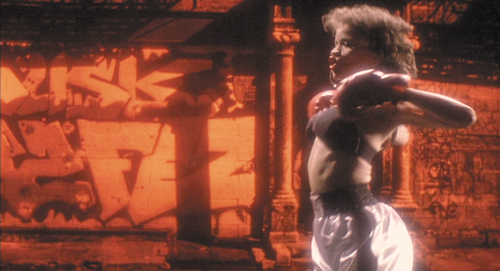
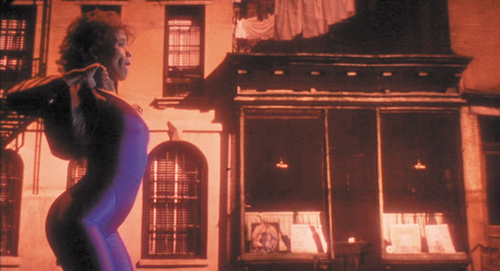
TO THE MEMORY OF MY FATHER, THE BIG G
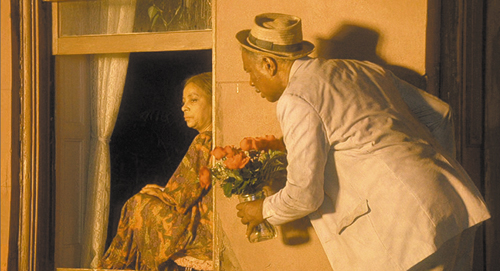
Do the Right Thing
Ed Guerrero
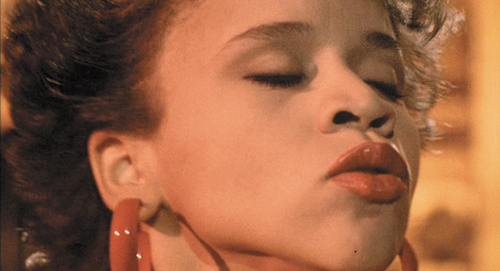

Contents
Besides the basic research and multiple drafts, good film books are always fed by good company, consisting of exuberant conversation and debate about the movies with colleagues and friends. This has certainly been the case with the production of this monograph, so my thanks go out to all those who have done some basic hanging out with me and shared their opinions about black cinema and its critical discourse. I want to especially thank my colleague Toby Miller for the relevant hook-ups and much illuminating discussion during the writing of this project. I also want to thank my colleagues at NYU Bob Stam, Anna McCarthy, Bob Sklar, Sheril Antonio, Richard Wesley, Mary Schmidt Campbell, Fred Moten, Manthia Diawara and Clyde Taylor. Many thanks also go out to my wife Alvina Quintana, as well as Ella Shohat, Lane Hirabayashi and Marilyn Alquizola, Charlotte and Houston Baker, Herman Gray and Rosa Linda Fregoso, Elaine Kim, Paula Massood, Arlette Frund, Peter Feng, Jesse Rhines, Alessandra Speciale, Lucas Hilderbrand, Carol Henderson, and the late Barbara Christian, good friends, scholars and intellectuals all. They have been great company and provided invaluable insight into the dynamic of black cinema and its attendant politics and culture.
Over the past three decades, Do The Right Thing has proven to be a remarkable film in so many aspects that expand beyond the expectations of the dominant commercial film industry. One of Spikes best, and deemed a classic by the Library of Congress National Film Preservation Board, Do the Right Thing has stayed in circulation across many media platforms in the popular imaginary, and in the social conversation since its premiere. What keeps Do the Right Thing so fresh, so in play, is how well the films observations, arguments and predictions have held up and by stunning, obvious contrast, how little the nation has changed on the use of police violence, extra judicial and otherwise, against African Americans, and all people of colour and difference, for that matter.
In the case of Do the Right Thing , one can argue that life and politics chase art in so many dimensions. With a depressing certainty, the real life, illegal chokehold death of Eric Garner is chillingly forecast by Radio Raheems chokehold death in the film, twenty-five years earlier. Moreover, in the films denouement, the list of the fallen victims, shouted, protested and ongoing, anticipates and gives momentum to the percolating, and soon to rise Black Lives Matter movement. In addition, the film predicts an inevitable demographic destiny of diversity and the kinds of social catastrophes that await us if we try to go backwards and dont catch on to this fluid, diverse new world. Challenged by new social formations and rising identities, the old, hegemonic, demographic model of majority/minority is fast crumbling. This forces the question simply posed by Senior Love Daddy: Are we going to learn to live together?
Finally, one of the most important aspects of Do the Right Thing , and one overlooked by Hollywood, has to do with the films persistent circulation over the decades. Very often a classic commercial film wont immediately kill at the box office, but will have a long tail of influence, circulation and profit, over time. With regard to this, Spike and company have long coat tails. Think of all the cast, and crew, that Spike, and 40 Acres, have discovered and opened up to careers in dominant cinema. So, beyond the booms and busts, ups and downs, waves and cycles, that black film production is subjected to, Do the Right Thing has made a foundational contribution to the progress of black American cinema and its critical discourse.
Ed Guerrero,
New York City
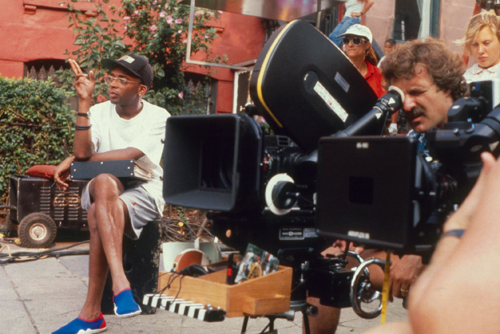
Spike Lee, director, on set
No doubt this film is gonna get more heat than any other film Ive done. I know there will be an uproar about this one. Were talking white people and racism in a major motion picture. It will be interesting to see how studios deal with it. This film must have a wide, wide release. I have to have major assurances going in.
Spike Lee
As he suggests in this opening inscription, Spike Lee draws upon a number of skills as writer, producer, director and marketeer to push his films to popular success. But perhaps more than anything else among his many talents and attributes, Lee is an issues-oriented film-maker whose work is always, in some way, grounded in collective, social values. Indeed, the controversies and representational politics of urban blackness are his fortune. All of Lees films radically and thematically depart from one another, each marking a break with the style and content of its predecessor, with each film situated in its particular historical moment, attendant set of issues and circumstances of production, with none adhering to a particular formula or genre. Significantly, each of Lees films is organised around a social issue, political conflict, or a personal theme, mixed with an insightful rendering of the subtle nuances and rhythms of African American culture and urban life. Additionally, while the Lee strategy of portraying the dramatic tensions built around an array of conflicts with personal and social consequences is hardly new to the film industry, Lee has been quite adept and successful at feeding off the media attention generated by the controversies surrounding many of his productions. Not incidentally, this high media visibility has greatly contributed to Lees star persona and public cach as one of Americas most recognisable and prolific film makers, and even the most cursory examination of these debates and polemics is revealing.
The controversy over School Daze (1988) erupted when Lees satirically frank depiction of the colour and caste contradictions of black collegiate life (the Wanabees vs. the Jigaboos) didnt agree with the conservative uplift the race vision of the administration of Moorhouse College. Consequently, Lee, a third-generation Moorhouse man, was denied use of the college as a location in mid-shooting schedule. With Mo Better Blues (1990) came accusations of anti-semitism, prompting Lee to rebut these claims in the public forum of The New York Times .
